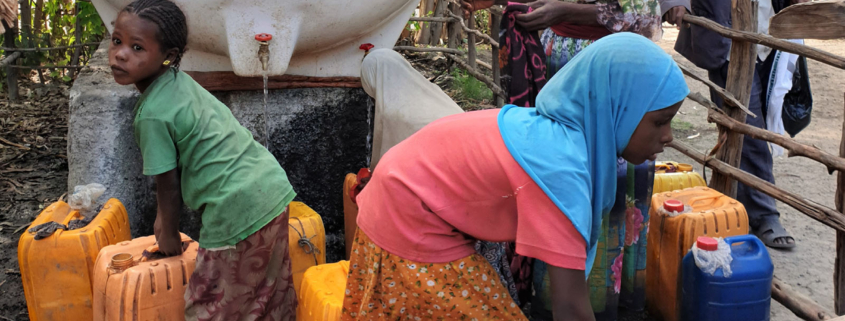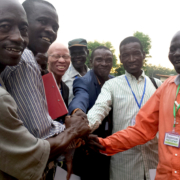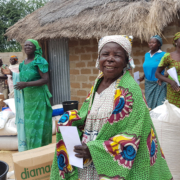Water project heals rifts and brings cohesion in rural Ethiopian community
Ethiopia is beautiful, but water is a scarce commodity in certain parts of the country. In one specific area towards the east, there is only enough rain for one harvest per year. That does not earn these subsistence farmers enough income to allow them to purchase things like water pumps to help ease the work. Everything changed the moment Aflame partnered with a local church to bring some much-needed change.
Unwanted minority
When a group of Christians built a church in one Muslim dominated area a few years ago, they were welcomed with rocks thrown at them. Pastor Eliso was reminded every day that his neighbours didn’t want them or their religion in this area.
“During church services and times of worship, they would throw rocks at the church and shout insults at us,” explains pastor Eliso. “But that aggression was the easy part of the persecution. The hard part was the isolation we felt, because they refused to interact with us. They had no respect for us and considered us as unholy and despicable people.”
During the Covid-pandemic, Aflame partners visited this area and witnessed how persecution together with the covid-restrictions made life very difficult for Christians. The pastors then informed us about the water problems.
“We cultivated mostly corn in this region. But we were dependent upon rainfall,” Eliso stated.
Together, we decided to build a water system that could benefit both the church and the local people. But we also hoped that this would help improve the relationship between the Christians and Muslims.
Today the pit sits in one corner of the church compound. It took ten volunteers from this church one month to dig the pit. Then a water pump was installed at the bottom of the pit and the whole thing was roofed. From there, channels were dug that carry the water to farmland in the area. The water now serves several farmers, both Christians and Muslims.
Multi-pronged solutions
“Immediately after the water project was started, farming suddenly started to boom. Now, people who never used to own anything, have been building their lives,” Eliso explained.
The water is also used in the farmland that belongs to the church. Its crops are sold at the market and pays the pastor’s salary and some other church overheads. It also provides drinking water to over a thousand households, Muslims and Christians. Free of charge.
“From the start we wanted this water to benefit everybody, Christians and Muslims, without any payment. We wanted to achieve high goals. People from the community would hear Christian songs and testimonies, while fetching water. And it would solve our problems of getting drinking water.
“The water project has brought reconciliation in many ways. People who didn’t greet each other before, now do. People who never listened to each other before, now do. And that is not all. These days Christians are invited into leadership positions in local committees. That is because they are regarded as honest, servant-leaders. That is how far reconciliation has come,” Eliso says.
The Christians told the other Christians to wait so that Muslims can get their water first. That kindness is their habit. They always do things like that.
One of the Muslims who benefits from this project, Abdala, agrees. “The Christians told the other Christians to wait so that Muslims can get their water first. That kindness is their habit. They always do things like that. Our children were often ill. And also we, the adults, were prone to illness. Now, our children are well, the adults are well and even the elderly are well. All because of the provision of clean water. The result is that we now respect each other. We have mutual respect. We live together in love.”



